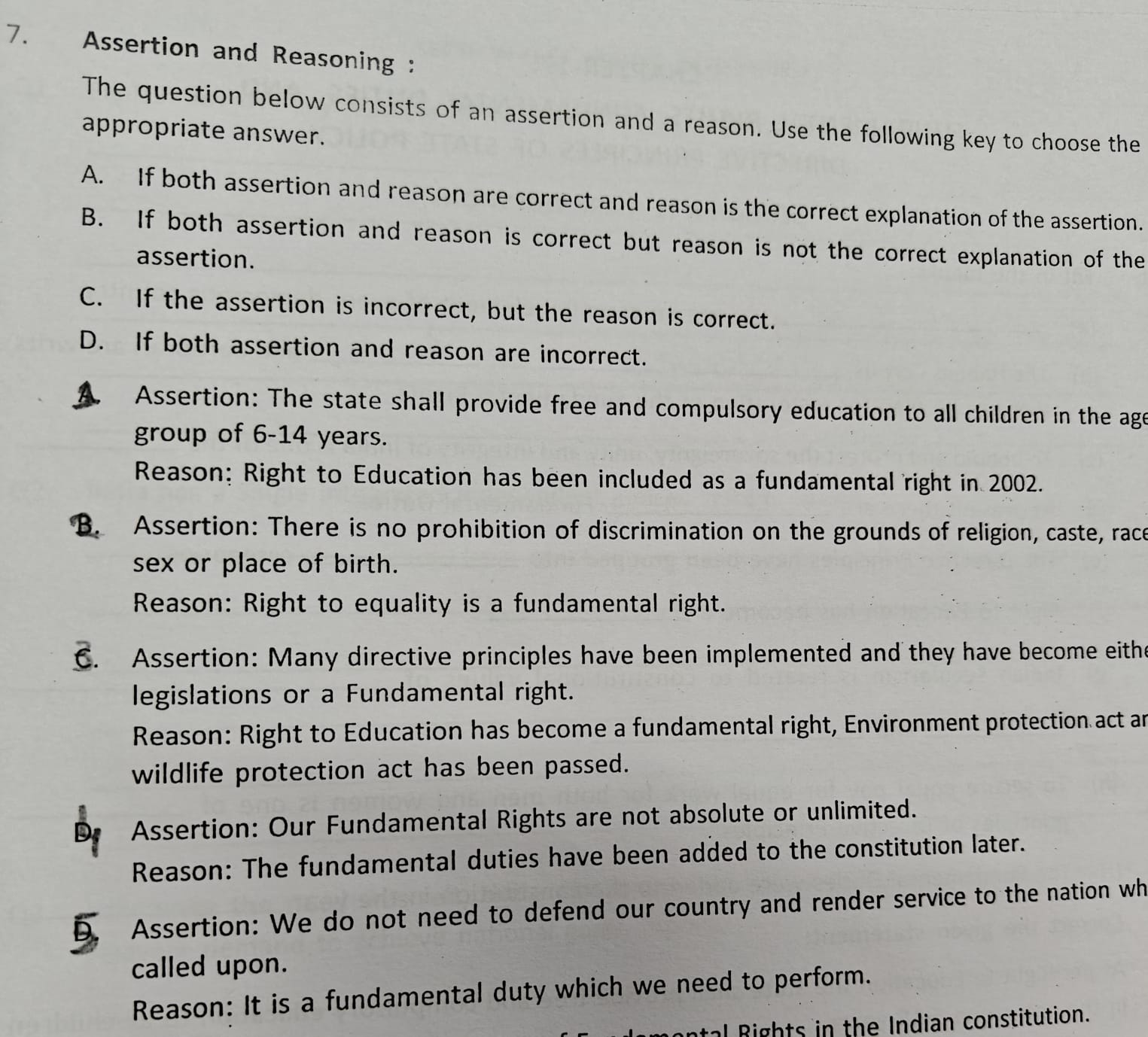Evaluate the following assertion and reasoning pairs related to Indian consitutional rights and duties and select the appropriate answer based on the keys provided (A, B, C, D).

Understand the Problem
The question presents a series of assertion and reasoning pairs related to Indian constitutional rights and duties. The task is to evaluate each pair and determine if both the assertion and reason are correct, and if the reason correctly explains the assertion. The question covers topics such as the Right to Education, prohibition of discrimination, Directive Principles, Fundamental Rights, and Fundamental Duties. Each option A-E has an assertion and a reason, and you must choose the correct option according to the key provided in the instructions.
Answer
A: A, B: D, C: B, D: B, E: C
Here's the evaluation of each assertion and reasoning pair: A. A: Both the assertion and the reason are correct, and the reason is the correct explanation of the assertion. B. D: Both the assertion and the reason are incorrect. Article 15 of the Indian Constitution prohibits discrimination on the grounds of religion, race, caste, sex, or place of birth. The Right to Equality is a fundamental right, but the assertion itself is incorrect. C. B: Both the assertion and the reason are correct, but the reason is not the correct explanation of the assertion. Many directive principles have influenced legislation, and the acts mentioned in the reason do relate to the implementation of directive principles. D. B: Both the assertion and the reason are correct, but the reason is not the correct explanation of the assertion. Fundamental Rights are subject to reasonable restrictions. E. C: The assertion is incorrect, but the reason is correct. It is a fundamental duty to defend the country.
Answer for screen readers
Here's the evaluation of each assertion and reasoning pair: A. A: Both the assertion and the reason are correct, and the reason is the correct explanation of the assertion. B. D: Both the assertion and the reason are incorrect. Article 15 of the Indian Constitution prohibits discrimination on the grounds of religion, race, caste, sex, or place of birth. The Right to Equality is a fundamental right, but the assertion itself is incorrect. C. B: Both the assertion and the reason are correct, but the reason is not the correct explanation of the assertion. Many directive principles have influenced legislation, and the acts mentioned in the reason do relate to the implementation of directive principles. D. B: Both the assertion and the reason are correct, but the reason is not the correct explanation of the assertion. Fundamental Rights are subject to reasonable restrictions. E. C: The assertion is incorrect, but the reason is correct. It is a fundamental duty to defend the country.
More Information
Here's a breakdown:
- Fundamental Rights: These are basic rights guaranteed to all citizens.
- Directive Principles: These are guidelines for the government to follow when framing laws.
Tips
Carefully consider each statement individually before evaluating the relationship between them.
Sources
AI-generated content may contain errors. Please verify critical information